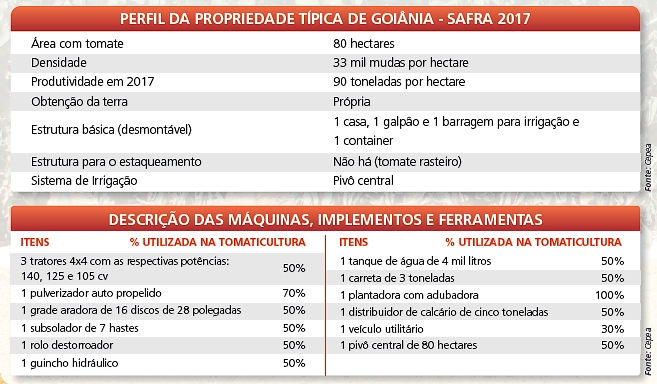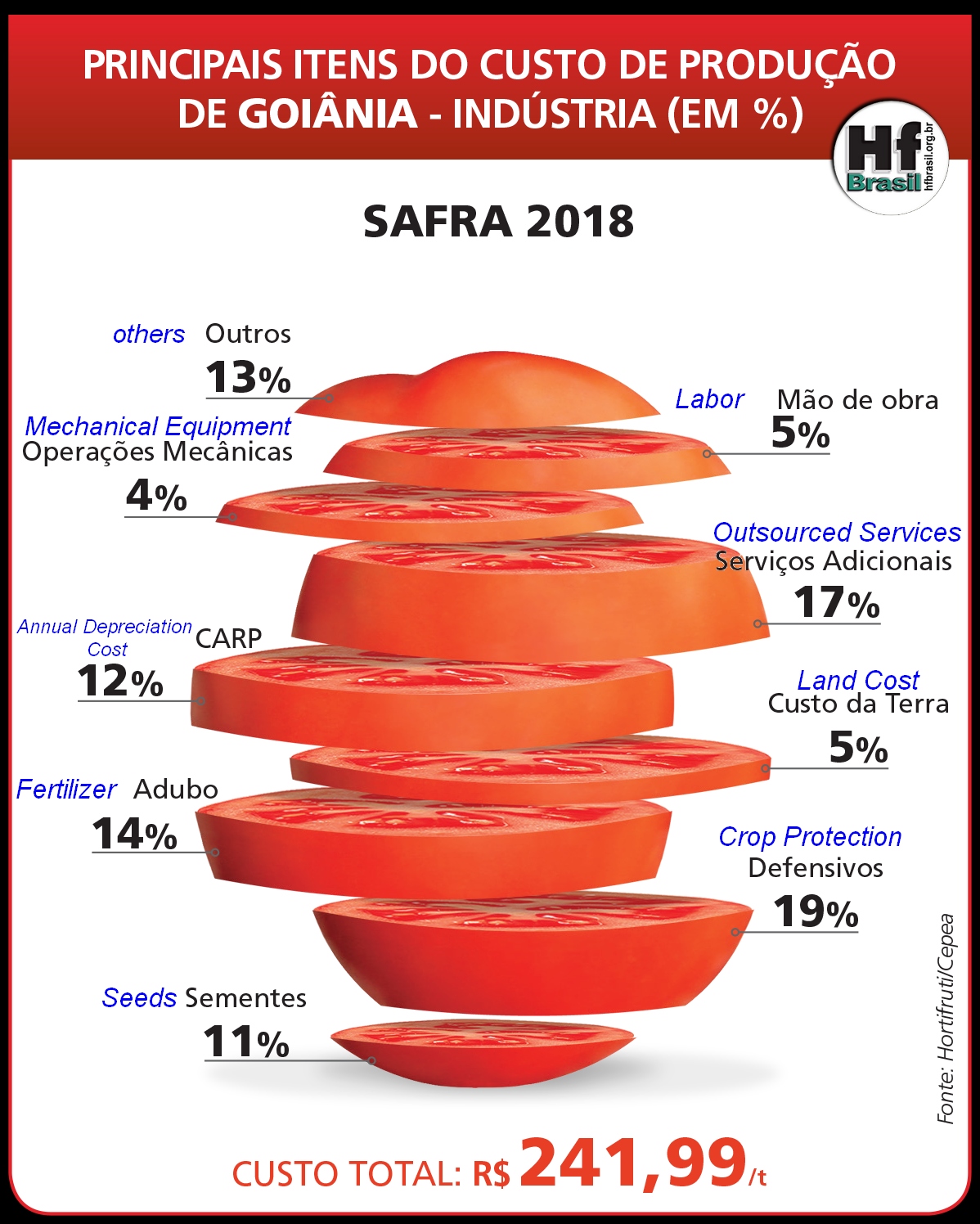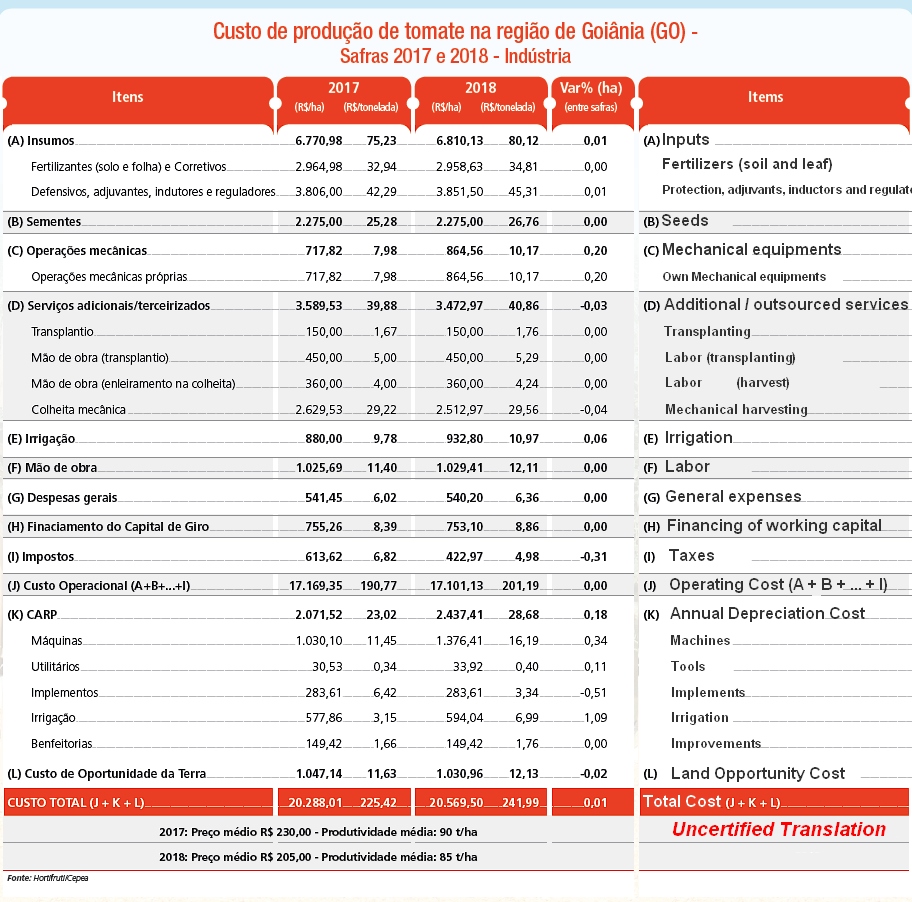Respect for your privacy is our priority
The cookie is a small information file stored in your browser each time you visit our web page.Cookies are useful because they record the history of your activity on our web page. Thus, when you return to the page, it identifies you and configures its content based on your browsing habits, your identity and your preferences.
You may accept cookies or refuse, block or delete cookies, at your convenience. To do this, you can choose from one of the options available on this window or even and if necessary, by configuring your browser.
If you refuse cookies, we can not guarantee the proper functioning of the various features of our web page.
For more information, please read the COOKIES INFORMATION section on our web page.



 In 2017, the total cost per hectare of growing processing tomatoes in the Goiânia region amounted to 20 288 Brazilian reals (BRL) (about EUR 4 669 or USD 5 447), the equivalent of BRL 225.4 /mT (close on EUR 52 /mT, or slightly more than USD 60 /mT).
In 2017, the total cost per hectare of growing processing tomatoes in the Goiânia region amounted to 20 288 Brazilian reals (BRL) (about EUR 4 669 or USD 5 447), the equivalent of BRL 225.4 /mT (close on EUR 52 /mT, or slightly more than USD 60 /mT).




























